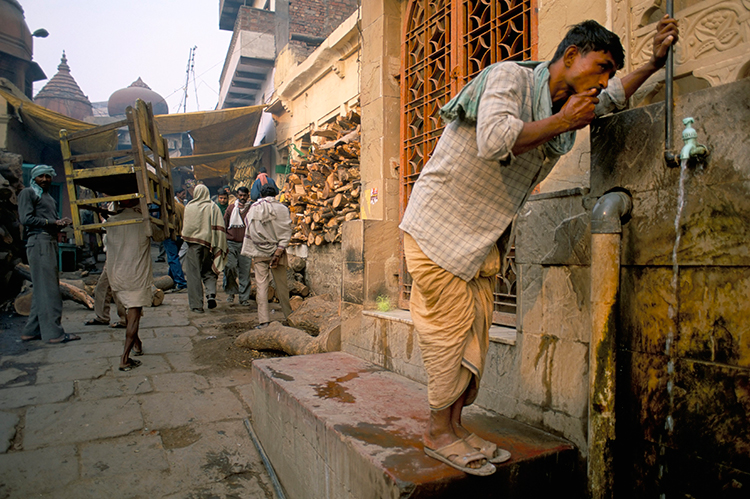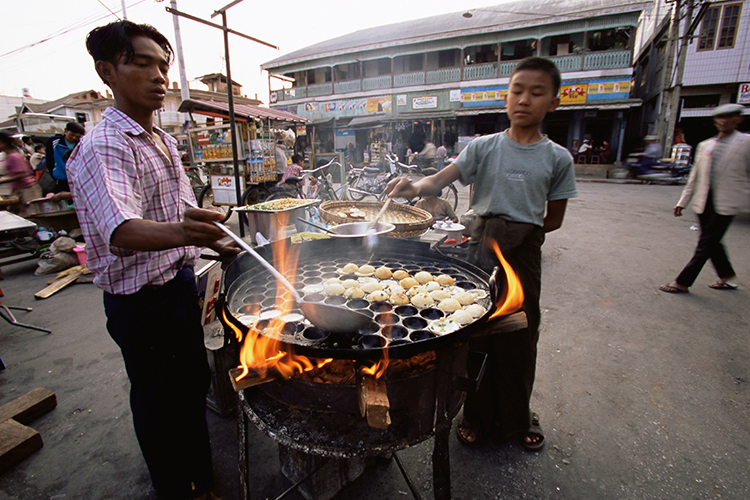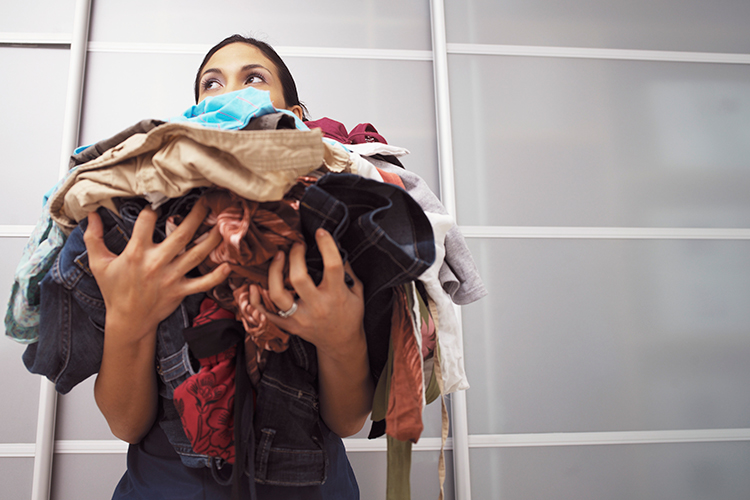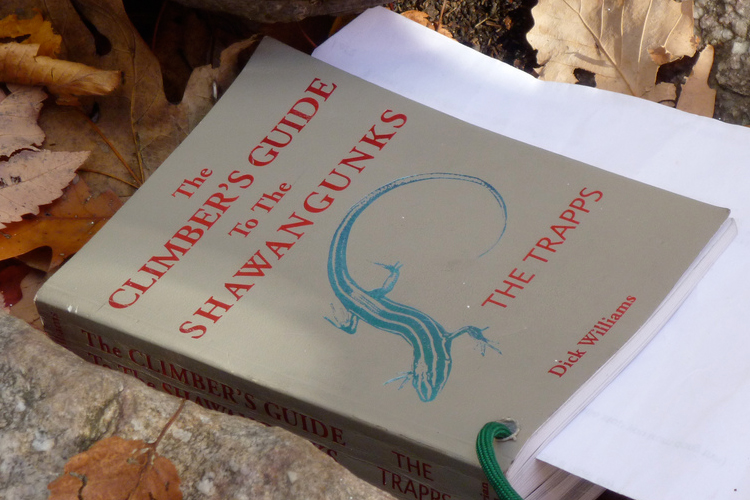"I never book a room before I get to a destination. It's better to visit all the hostels first, then make a decision," a traveller confidently informs you as you spend 10 minutes booking a room online. This person will spend four hours wandering the streets in search of the last open bed in Barcelona, lugging all their possessions and spending US$8 on public transport, while you check in, go to a museum, eat lunch and maybe have a nap.
"French people are very rude and British people are all polite," says your auntie, who has never been abroad.

Man drinking from tap in Varanasi, India. Image by Upperhall Ltd / Robert Harding World Images / Getty Images.
The travel advice above sounds dubious immediately. At least to most people. Other bad advice takes a little thought, or possibly an expensive and painful mistake, before being declared bogus. (For the record, tap water, even in a few unlikely countries, is usually just fine.)
Learn from the mistakes of others by studying our selection of classic and contemporary pieces of bad travel advice.
One of the most debated, most nuanced statements in travel. The answer, naturally, is 'it depends'. Places like India and some countries in the Middle East can be challenging for solo female travellers. The baseless warnings that women shouldn't travel solo in places like Thailand or, hilariously, England, are the ones that cause experienced travellers to curse in protest. Bad things can happen in any country, to women or men, and the best piece of advice is don't take any risks you wouldn’t take in your home country.

Street food vendor in Myanmar. Image by Colin Brynn / Robert Harding World Imagery / Getty Images.
This is, without exaggeration, the worst piece of travel advice in the history of forever. Yes, in some countries certain precautions should be taken when choosing a street food vendor; but street food is arguably the most direct and inexpensive route to a country's identity and should be considered an integral part of travel. Furthermore, most experienced travellers will have a tale of woe about getting sick from an ostensibly fancy sit-down restaurant, even in places like the US or Italy, proving that one can get sick eating almost anywhere.
Traveller's cheques stopped being essential in the late 90s when international ATM networks became ubiquitous. Indeed, these days, traveller's cheques are nearly useless in many destinations because so few banks and businesses are willing to cash them. For emergencies, carry a back-up ATM card or credit card stored safely and separately from your wallet. In some instances, a hidden stash of a large notes in a preferred currency like euros or US dollars is also a good idea.
Budget travellers in particular will have a tale of the 'worst pizza ever', purchased on the street in Venice or some such place in Italy. Tourist traps everywhere sell abysmal food in or near the most conspicuous places of interest, even if it's their own world-famous cuisine.
These kinds of statements need a dozen or so caveats. Time and destination permitting, planning little to nothing - on, say, a shoulder-season trip to Greece - could end up being one of your most memorable trips ever. The same approach for island-hopping in the Caribbean in high season could bankrupt you or leave you sleeping on a park bench. Thankfully, most destinations fall somewhere in the middle area and striking a balance between planned and unplanned travel is usually pretty safe.
For the most part, this isn't a problem. It’s possible to access Facebook, Twitter, Tumblr, and just about anything else while in China, if one is duly determined. A quick search for the most recent information should present several workarounds.

Woman carrying bundle of laundry. Image by John Slater / Stone / Getty Images.
Factually correct, but not at all helpful. With notable exceptions, doing laundry on the road is pretty straightforward and can sometimes be easier and less expensive than at home - in Vietnam, doing laundry is as simple as handing the dirty clothes bag and US$1 to your hotel/hostel clerk. Also, the more clothes you bring, the heavier your bag, which can cause all kinds of trouble for long journeys overland and penalty fees on airlines.
Again, this can vary depending on the destination, but generally speaking they have everything there that you have at home. And often cheaper.
Anyone who gives you this advice hasn't travelled much and should probably be avoided at home as well.

Gudebook by Laurel F. CC BY-SA 2.0.
This may be true some day, but for the moment relying solely on travel advice gleaned from hours of rooting around online is still a dubious proposition. Some excellent destination-specific websites exist, but for every one of those there are a hundred sites that are out of date, have never been fact-checked, or are of the easy-to-game, crowd-sourced variety.
More importantly, there’s a heartening trust that comes with reading travel advice from a consistent, vetted source, proofed by a meticulous editor, and gathered by a savvy author who was on that trip specifically to collect that information. I honestly can’t fathom how that festival of confidence can be improved upon, but until that magical day comes I’ll pay for a guide.